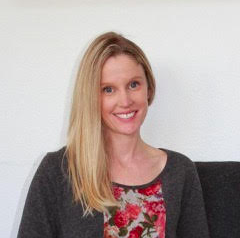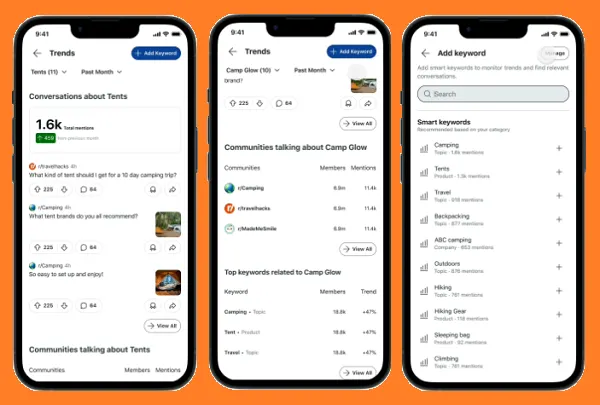Only 3% Of The Population Has This Rare, Ultra-Social Personality Type — Do You?
"You know those sorts of people that attract attention so easily that make you scratch your head?"


March 23, 2022 — 10:03 AM
The Myers-Briggs Type Indicator, aka the MBTI, categorizes people into one of 16 personality types. And of all 16 MBTI types, few are more personable than ENFJs. Whether you're an ENFJ yourself, or you've got someone in your life who is, here's everything you need to know about the type, from strengths and weaknesses, to relationship compatibility, and more—according to experts.
The ENFJ personality type.
ENFJ stands for extraverted, intuitive, feeling, and judging. Representing just 2.5% of the population, the ENFJ personality type is characterized by being incredibly friendly and social. Michael Segovia, a senior consultant at the Myers-Briggs Company, tells mbg ENFJs are often described as gregarious, warm, and friendly.
"When people with ENFJ preferences make decisions, they are truly concerned about the impact on others," he says, adding, "This, however, can lead them to spend so much time making accommodations to give people what they want, that it can become exhausting for them, especially if they don’t take care of themselves first."
John Hackston, head of thought leadership at the Myers-Briggs Company, echoes this point, explaining that ENFJs are often so concerned with others' values, they may try to "correct" other people. "They can sometimes be a little too forceful—and can take criticism very personally, even when a comment wasn’t intended to be critical," he says.
One of the main things to know about ENFJs is they are extremely friendly, and they have no problem making new friends and connections. "Do you know those sorts of people that attract attention so easily that make you scratch your head? Probably an ENFJ," Hackston notes.
Along with being friendly, these folks are also incredibly considerate. Segovia notes they're always making decisions that take others into account, looking for win-wins for everyone in their personal and professional relationships. "An ENFJ will always think about walking in someone else’s shoes and take people’s values very seriously," Hackston adds.
ENFJs are very community-oriented, always considering the needs of the group. "They can bring very different people together and create a community. They are community-minded and are always ready to mediate conflicts, actually disliking friction from the bottom of their hearts," Hackston explains.
ENFJs are so good at accommodating everyone thanks to their ability to zoom out and see the big picture. Segovia explains that their decision-making process involves taking time to explore the big picture, and think about future-focused ideas that benefit everyone.
And last but not least, ENFJs have a trademarked extraverted personality that won't go unnoticed. While all the personality types exist on an individual level of extraversion versus introversion, most ENFJs are going to be pretty social. "They are the kind of fun, talkative, and personable folks that not only make friends very fast, but also sincerely care about others," Hackston says.
It's important to note that, according to Segovia, any two types can work in a relationship if they are open to appreciating the values and the differences of their partners.
"That said, people with ENFJ preferences may seek relationships where they can grow together with their partner, where they can have deep meaningful discussions about love and life, and where they can organize all that in a way that makes their lives together positive and fulfilling," he says.
Because ENFJs are very future-oriented, he adds they can also have difficulty connecting with the here and now. As such, "a potential challenge for them is communication with their partner in a realistic and practical way, especially if their partner prefers Sensing (S)," Segovia explains. Hackston notes they can also resist difficult conversations, because of their aversion to conflict.
However, he notes, these folks in a relationship are typically warm and genuinely concerned with building harmony. They're not ones to shy away from long-term relationships, thanks to their future-oriented focus.
"ENFJs are altruists and will support and encourage their significant other to thrive and get their life goals," Hackston says, though sometimes, they can take it too far, whether by neglecting their own needs or pushing their partner too hard.
Overall, according to Hackston, ENFJs want a partner they feel a connection with, who will show them appreciation. "They are likely to find this with other Extraverted Feeling (EF) types—especially INFJs and other ENFJs, but also ISFJs and ESFJs."
The strengths of ENFJs lend themselves nicely to a variety of careers, according to both Hackston and Segovia. They like to bring harmony to the workplace, often looking for a win-win among colleagues and team members, Segovia says, with Hackston adding, "ENFJs enjoy the company of their coworkers and are energized by being sociable and helpful."
They make enthusiastic, motivated, and empathetic colleagues, and appreciate schedules and structured processes in the workplace (and beyond). They also enjoy roles where they can motivate and organize other people to achieve results that align with their values, Hackston explains.
Because of their big-picture style of thinking, Segovia says they like to explore long-range, big ideas, as well as environments where they get to share their decisions with others—to make sure those decisions benefit as many people as possible.
"These types can make natural leaders and are great team players, keeping their focus on people and encouraging coworkers to make positive changes," Hackston says. They may feel uncomfortable, undervalued, or even guilty if they feel under-appreciated or get a bad from from coworkers, he adds.
How to thrive as an ENFJ.
1. Impact people positively.
As Segovia explains, this type thrives in environments where they can make a meaningful impact on people's lives. "If you [are an] ENFJ, you may want to seek environments and relationships in which you can make a longer-term impact on the people you work with and the customers you serve," he says.
2. Be aware of other people's boundaries.
ENFJs have a natural inclination towards helping others, but according to Hackston, sometimes people need to do things their own way. "Be aware of people’s boundaries. Sometimes ENFJs overstep people’s boundaries without noticing. Remember that you can’t help everyone all the time."
3. Try to avoid too many what-ifs.
Lastly, Hackston notes that ENFJs tend to rely on presenting information in a big-picture and future-possibilities way, and when stressed, can get sidetracked with too many what-ifs and indecision. As such, they do well to remember not to get carried away by too many possibilities.
ENFJs are friendly social butterflies and helpful friends to have—even if they can have a tendency to be too helpful. Whether you're an ENFJ, or someone you know is, understanding this type's preferences, strengths, and weaknesses can lead to greater harmony, and ultimately, better relationships.

 Konoly
Konoly 
































